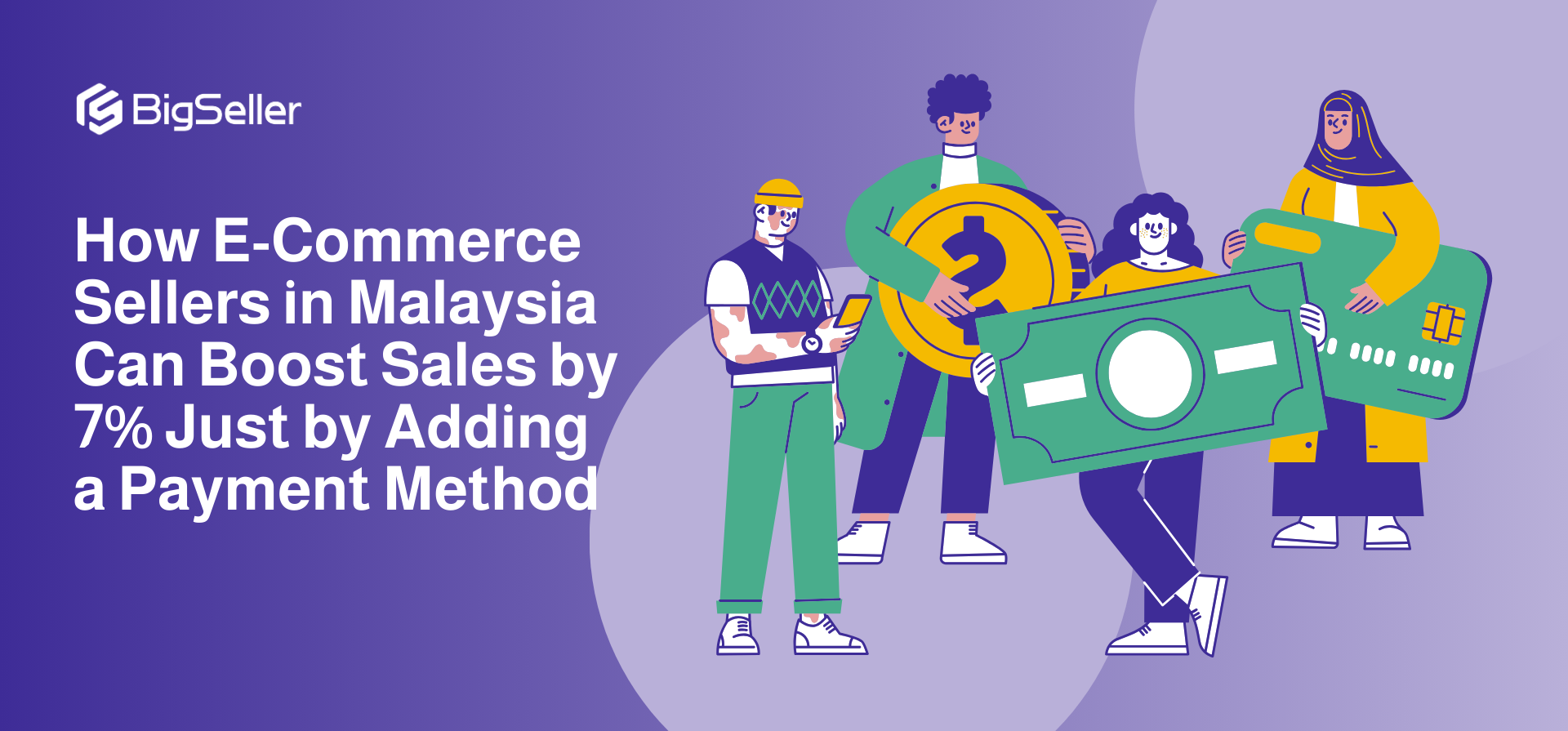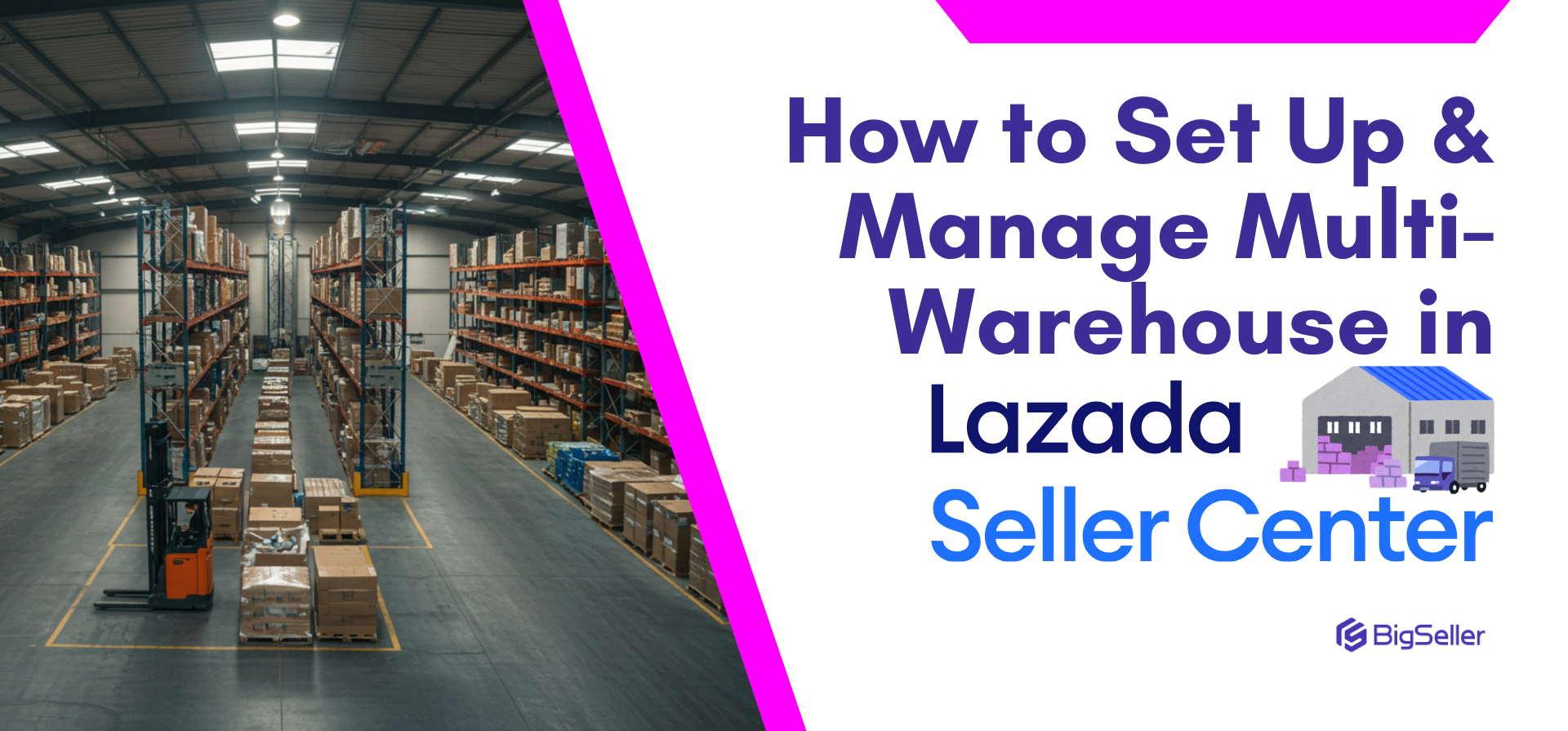Shopify Malaysia 2025 Pricing Guide: Plans, Fees, and Costs for Local Sellers
Erra 14 Aug 2025 09:23ENCopy link & title
Thinking of launching your online store in Malaysia with Shopify? Before you dive in, it’s important to understand exactly how much it will cost, not just the monthly subscription fees, but also domains, transaction fees, POS hardware, apps, and other hidden expenses that many first-time sellers overlook.
In this guide, we break down Shopify Malaysia pricing for 2025, including plan options, add-on costs, and what you need to budget for as a Malaysian merchant.
Shopify Free Trial & Starter Offer
Shopify is giving new users a 3-day free trial to set up their online store, explore features, and see if the platform fits their business needs, without paying anything upfront. Once the trial ends, you can continue using Shopify for only $1 USD per month for the next 3 months. After this starter offer period, your subscription will switch to the regular plan pricing based on the package you choose.
Shopify Plan Subscription
Shopify offers different plans for Malaysian merchants, each with its own monthly subscription cost. Below is the plan breakdown with prices in USD and MYR (current conversion rate: US$1 = RM4.20):
|
Plan |
Monthly Price |
Yearly Price (per month) |
|
Basic |
US$25 (~RM105) |
US$19 (~RM79.80) |
|
Grow |
US$65 (~RM273) |
US$49 (~RM205.80) |
|
Advanced |
US$399 (~RM1,676) |
US$299 (~RM1,255.80) |
|
Plus |
From US$2,300 (~RM9,660) |
– |
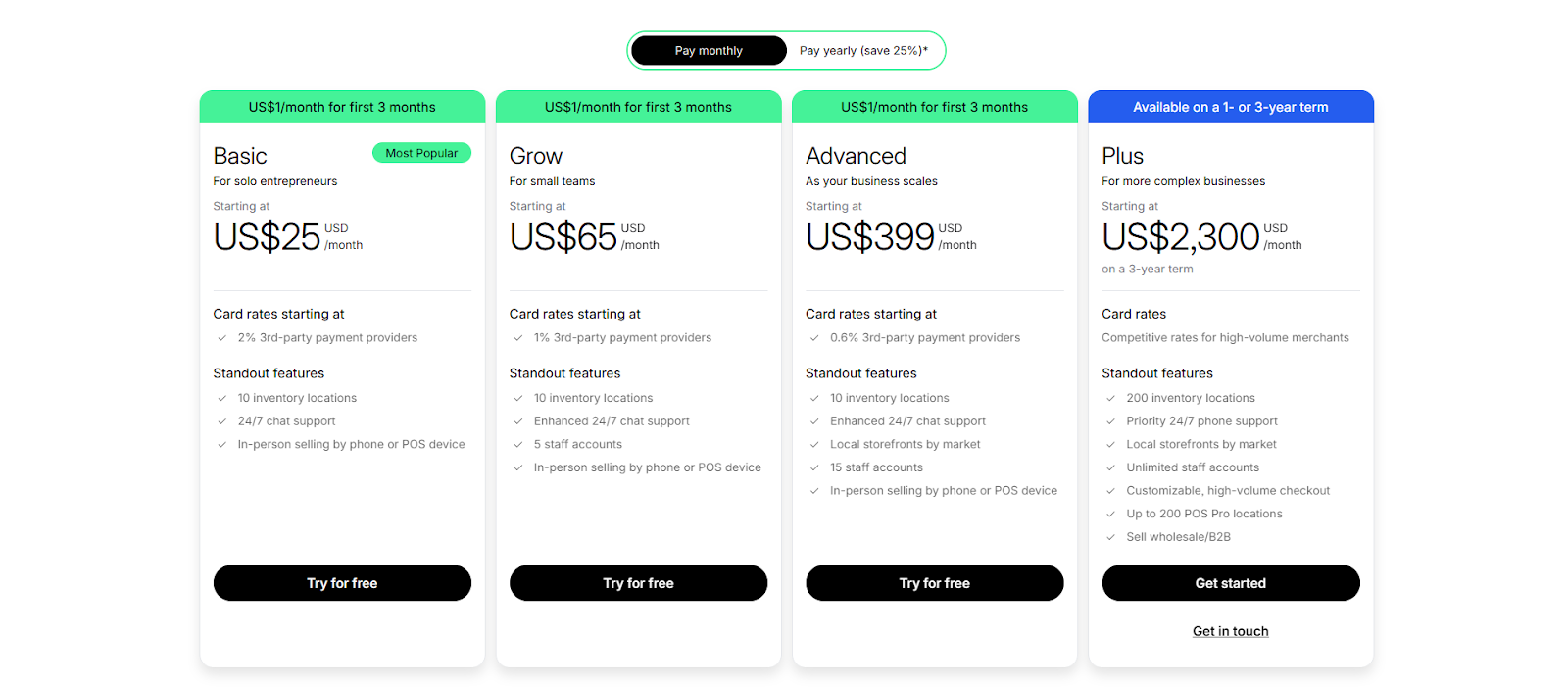
Shopify Starter Plan
The Shopify Starter Plan is the most affordable way to begin selling without committing to a full online store setup.
It’s designed for merchants who mainly sell through social media platforms (like Facebook, Instagram, or TikTok), messaging apps (like WhatsApp or Messenger), or by simply sharing a direct checkout link. Instead of creating a full website, you get a basic online storefront where customers can view your products and pay online.
-
Price: US$5 (~RM21) per month
Shopify Retail Plan
The Shopify Retail Plan is tailored for brick-and-mortar store owners who need a POS (Point-of-Sale) system to manage in-person sales, inventory, and staff, but don’t require a full online store.
-
Price: US$89 (~RM373) per month or US$79 (~RM331) per month if billed annually
Since Shopify Payments is not available in Malaysia, you’ll need to connect your POS to an external card terminal provided by your chosen payment processor.
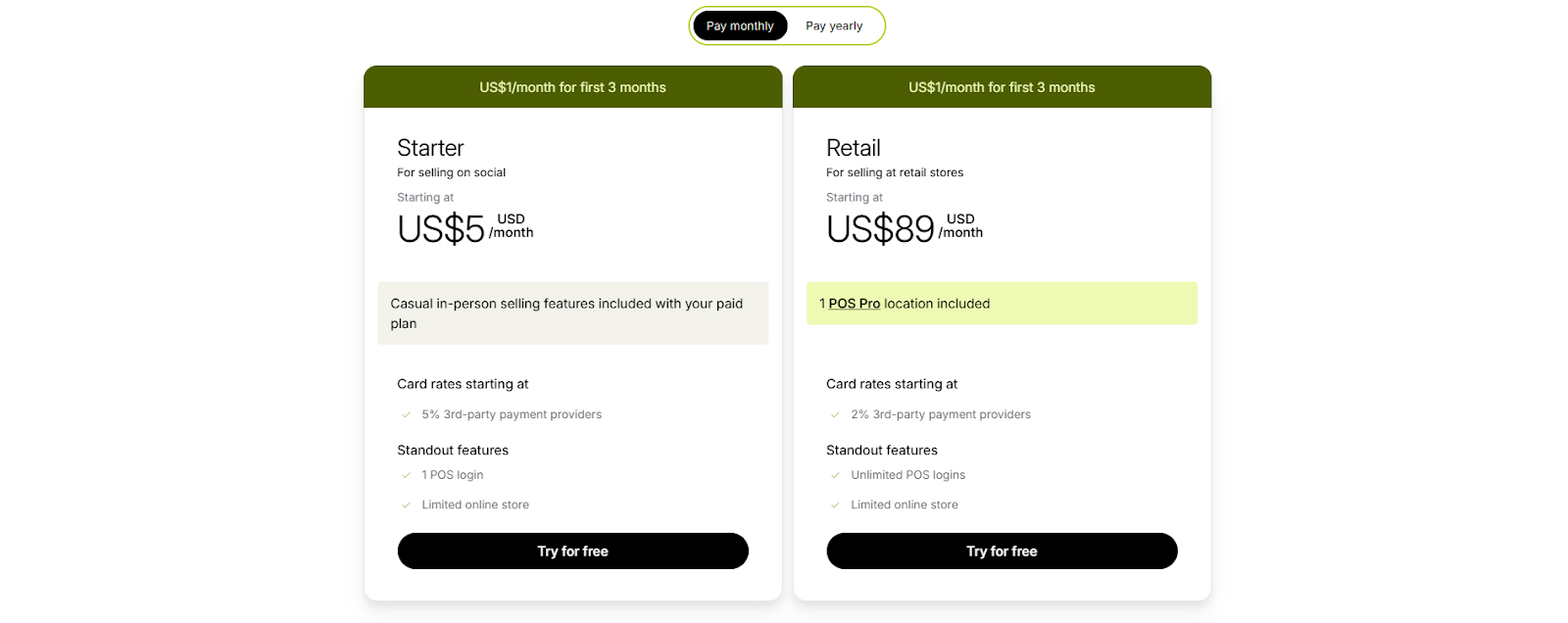
Additional Costs for Malaysian Sellers
When running a Shopify store in Malaysia, your total expenses go beyond just the base plan. Here are the main additional costs to consider:
1. Domain Name
A domain name is your store’s web address (e.g., www.yourstore.com) and is separate from your Shopify subscription. You can purchase it directly from Shopify or from an external registrar.
-
Buying from Shopify – Prices start at US$14/year (~RM59) for popular extensions such as .com, .org, or .net. The main advantage is convenience as Shopify automatically connects and renews it for you. However, you’ll usually pay a little more compared to some external providers.
-
Buying from an External Provider – Commonly costs US$10–US$20/year (~RM42–RM84). You might find cheaper deals, but you’ll have to connect the domain to Shopify manually and handle renewals yourself.
Some registrars offer very low first-year prices (sometimes under US$5 (~RM21)) to attract new customers. However, these often jump significantly during renewal, so check the second-year rate before committing.
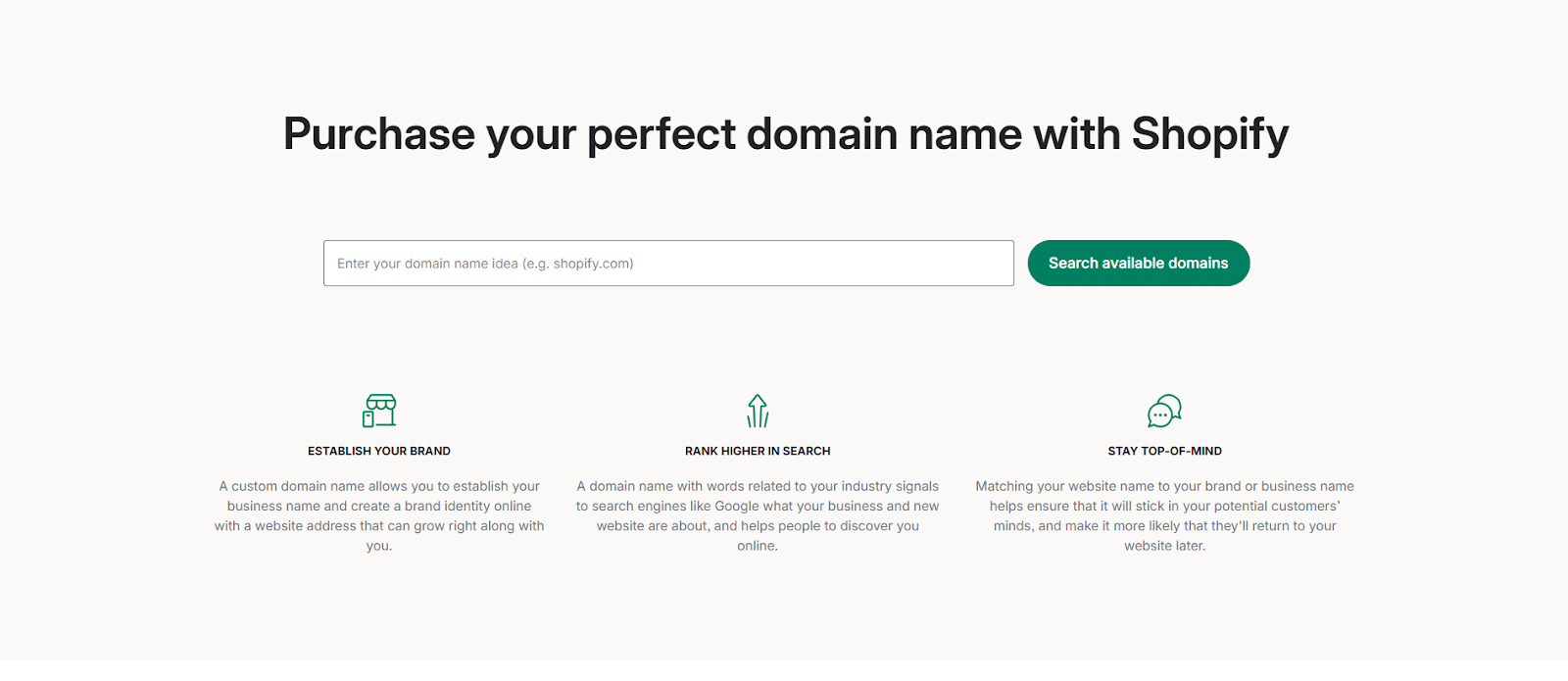
2. Transaction & Payment Gateway Fees
Shopify Payments is not available in Malaysia, so you’ll need a third-party provider such as iPay88, PayPal, or Stripe (via supported regions). Shopify charges an extra fee when using these gateways:
-
Basic: 2%
-
Grow: 1%
-
Advanced: 0.6%
-
Plus: 0.2%
-
Starter: 5%
-
Retail: 2%
This fee is in addition to the rates charged by your payment gateway, which can range from 2%–3% per transaction.
Themes
Shopify offers both free and paid themes to design your online store.
-
Free Themes – Suitable for basic storefronts, offering essential design features and limited customisation. Read more: How to Use Shopify Free Templates to Build Your Online Store in 2025
-
Premium Themes – Priced between US$150–US$380 (~RM630–RM1,596) as a one-time purchase. These come with more advanced layouts, richer features, and greater design flexibility.

Shopify POS Pro
Shopify POS Pro is an optional add-on for merchants who also sell in physical retail locations.
-
Costs US$89/month (~RM373) per retail location. If you have multiple outlets, each location requires its own POS Pro subscription.
-
Shopify Plus plans include POS Pro for up to 20 retail locations at no extra charge, making it more cost-effective for larger retail chains.
Extra Orders from Synced Listings
If you connect your Shopify store to external marketplaces like Lazada or Shopee using apps or integrations, Shopify tracks those synced orders against your plan’s monthly order limit.
-
If you exceed that limit, Shopify charges a 1% fee on the value of additional synced orders.
-
The extra fee is capped at US$99/month (~RM416), so you’ll never pay more than this in a given billing cycle, regardless of how many extra synced orders you have.
Tax Platform Add-ons
Optional paid integrations that automatically calculate and apply the correct taxes for each order based on the buyer’s location. These tools are especially useful for sellers handling multi-region sales or complex tax rules.
Costs vary by provider and are billed separately from your Shopify plan. Some charge a flat monthly fee, while others base pricing on order volume or regions covered.
Apps
The Shopify App Store offers thousands of tools to extend your store’s functionality, covering areas like marketing, inventory management, customer service, and analytics.
-
Free Apps – Provide basic features without extra cost, often ideal for new sellers.
-
Paid Apps – Range from US$5/month (~RM21) to over US$100/month (~RM420), depending on complexity and features.
While apps can greatly enhance your store’s capabilities, costs can add up quickly if you rely on multiple paid integrations, so it’s best to choose only those that bring clear value to your operations.
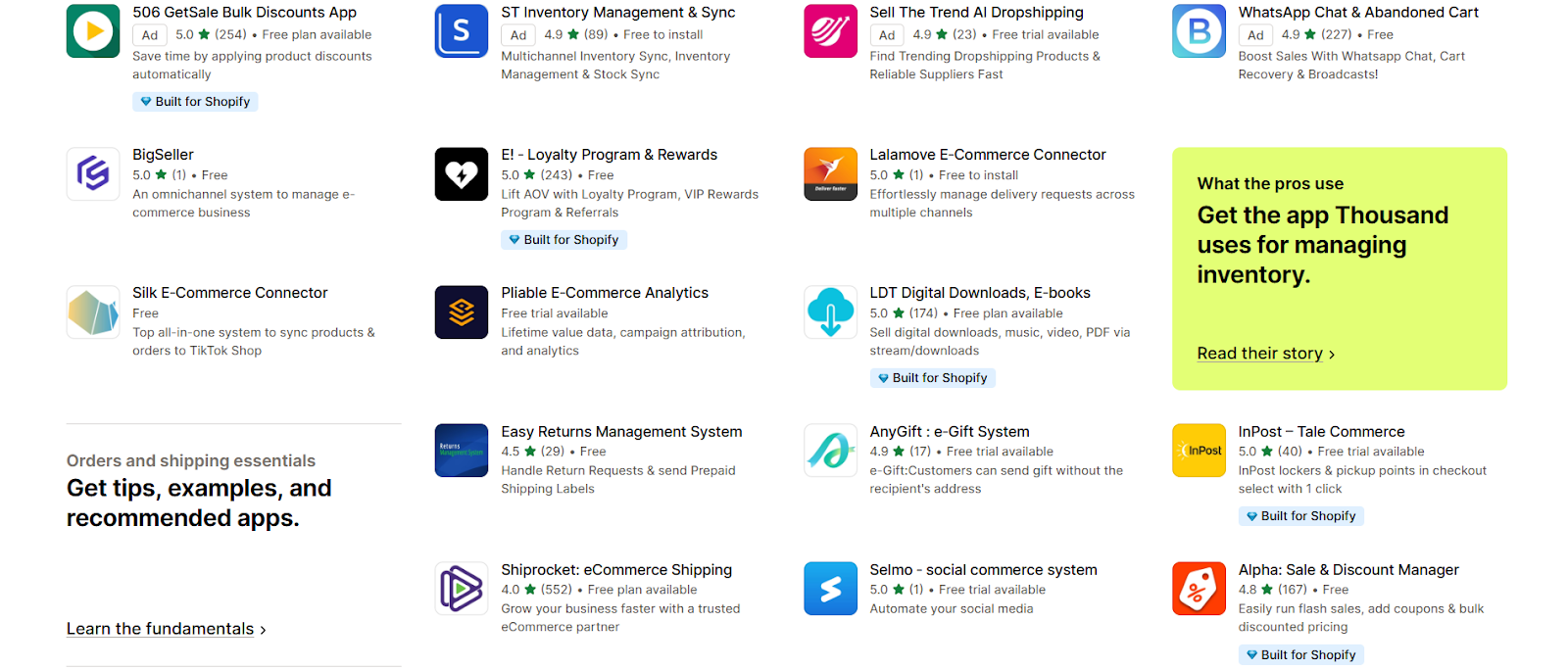
How BigSeller Makes Multi-Platform Selling Easier
For first-time sellers, Shopify’s add-ons can help you create a professional store and manage growth, but if you’re selling across multiple platforms, keeping track of everything in separate seller centers can quickly become overwhelming.
BigSeller helps offset these extra expenses by streamlining multi-platform order processing, eliminating the need to juggle multiple seller centers, and reducing costly mistakes. By centralising online, offline, and social media orders into one dashboard, sellers can save time, maintain accuracy, and keep more of their budget for growth rather than admin work.
Sign up for BigSeller for free today and receive a 7-day VIP trial coupon.
Follow our WhatsApp Channel for more e-commerce tips, updates, and seller resources.


